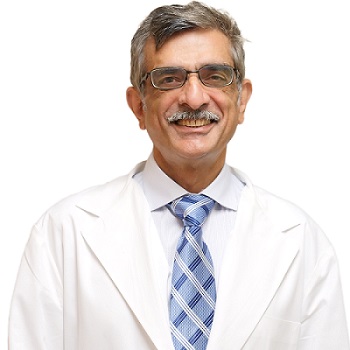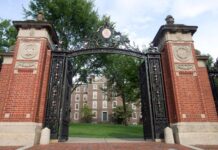Dr. Amer Malik, a board-certified and fellowship-trained gastroenterologist, has recently joined University Gastroenterology LLC.
Malik discusses the evolution of gastroenterology medicine, the role of technology and his love for Rhode Island.
PBN: Gastroenterology is a broad field. What is your specialty?
MALIK: I cover all aspects of gastroenterology but do specialize in colorectal cancer and pancreatico-biliary diseases.
PBN: You’ve been in this field for several decades. How has gastroenterology medicine evolved in the years you’ve been practicing?
MALIK: It has been a privilege to see all the truly fascinating innovative and radical changes over the years. A lot of the developments have been so exciting that I would have placed them in the realm of science fiction. There are too many even to list, but some that come to mind are the revolutions of curing ulcer disease by the discovery of H. pylori infection and curing hepatitis C. Both these caused tremendous suffering to literally millions of people worldwide. Who would have even imagined curing something like this?
In the technological field, the development of the percutaneous gastrostomy enabling the development of a “surgical” procedure endoscopically; band ligation of esophageal varices, which controlled variceal bleeding; the advances in biliary endoscopy, especially the development of the mother-daughter scope, which is marketed as the SpyScope; and the amazing development of the endoscopic ultrasonagraphy, which enabled us to see beyond the lumen of the gastrointestinal tract. These developments also allowed the development of various techniques to obtain tissue and treat diseases.
PBN: What are you looking forward to accomplishing at University Gastroenterology? Is there a specific research goal you are looking forward to pursuing?
MALIK: My aim is to fully engage in the clinical care being rendered by University Gastroenterology. The number of gastroenterologists allows for various research projects, which I am contemplating at present. These include trials with medications and various technological modalities to improve the delivery of clinical care. I also hope to continue my engagement of endoscopy nurses with the “Basics and Beyond” regional annual lecture programs, which I started many years ago and was quite popular.
PBN: Your education and work have taken you in different cities all over the world. What brings you back to Rhode Island?
MALIK: Rhode Island is a very special state. It has a unique history and character. Its location between Boston and New York City and its coastline is amazing. The people of Rhode Island are warm and wonderful. I believe it is New England’s best-kept secret.
PBN: What role does technology play in your field? How does it improve patient care?
MALIK: The gut enables us to reach areas which previously were not possible. Using technology, we can diagnose a myriad of diseases which enable targeted therapies. The field covers the gamut of medicine from tumors to infectious diseases to endocrine gut pathologies. It is an honor and privilege to have gained the skills to help patients and relieve suffering.
Claudia Chiappa is a PBN staff writer. You may contact her at Chiappa@PBN.com.













